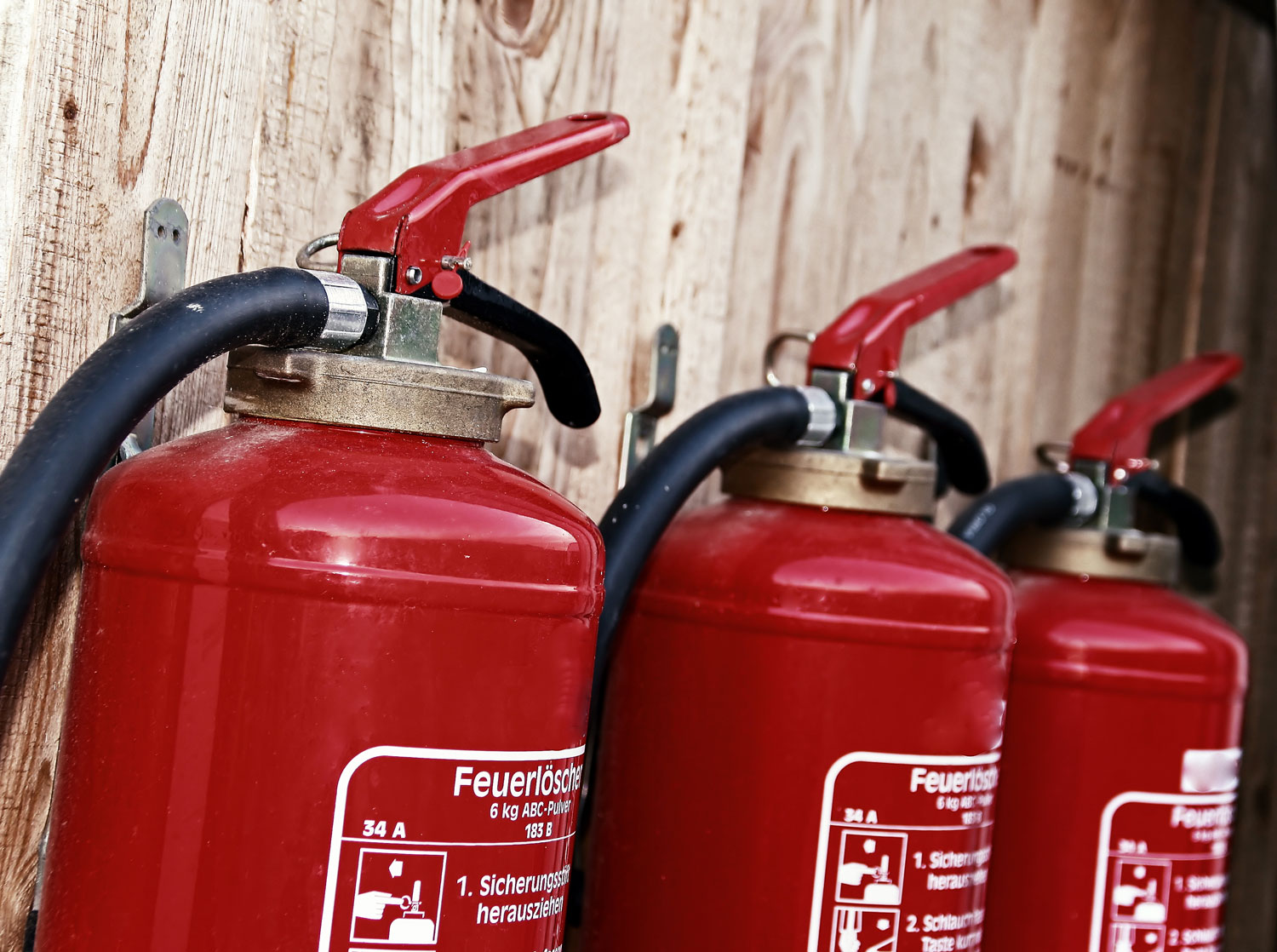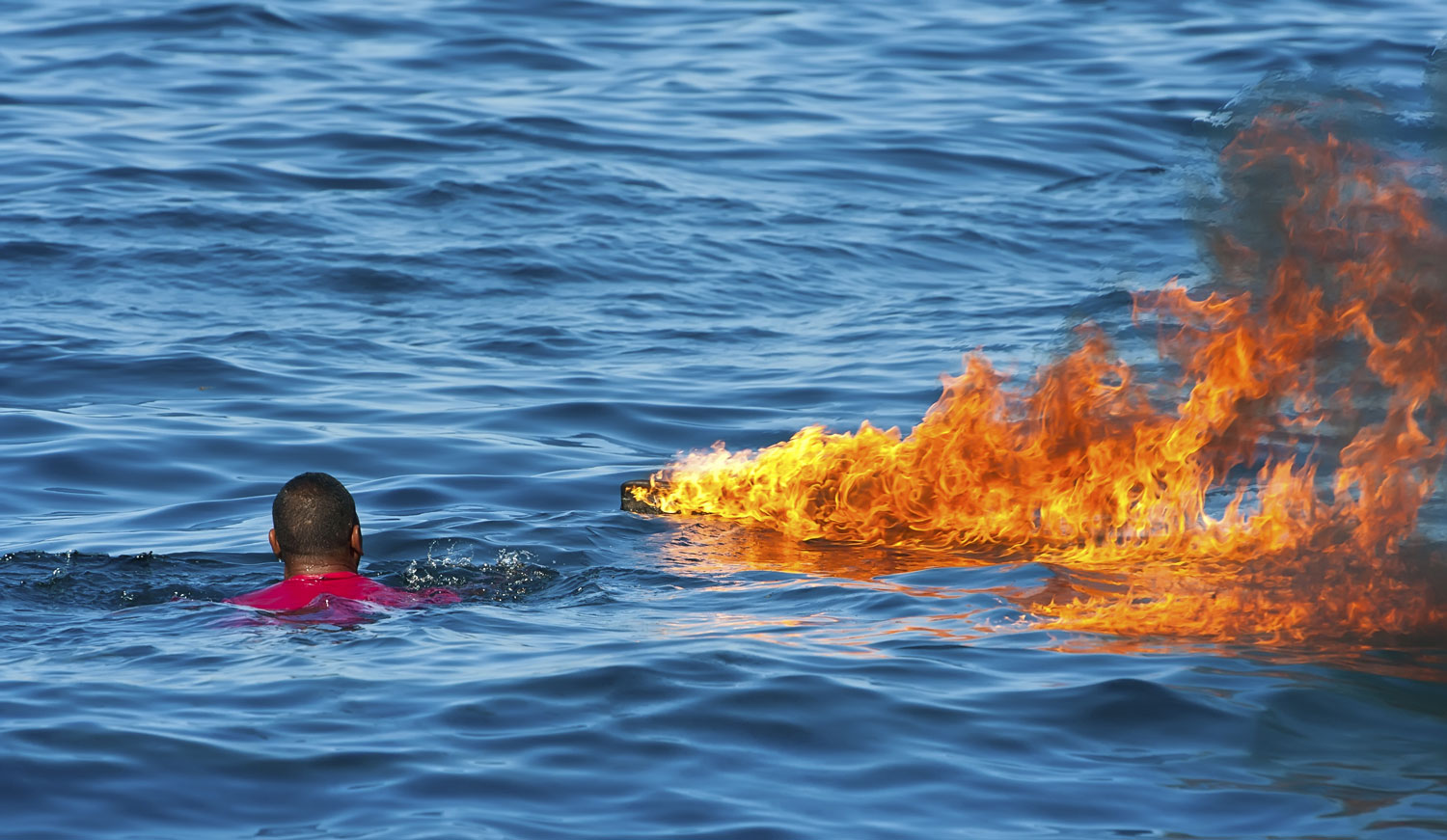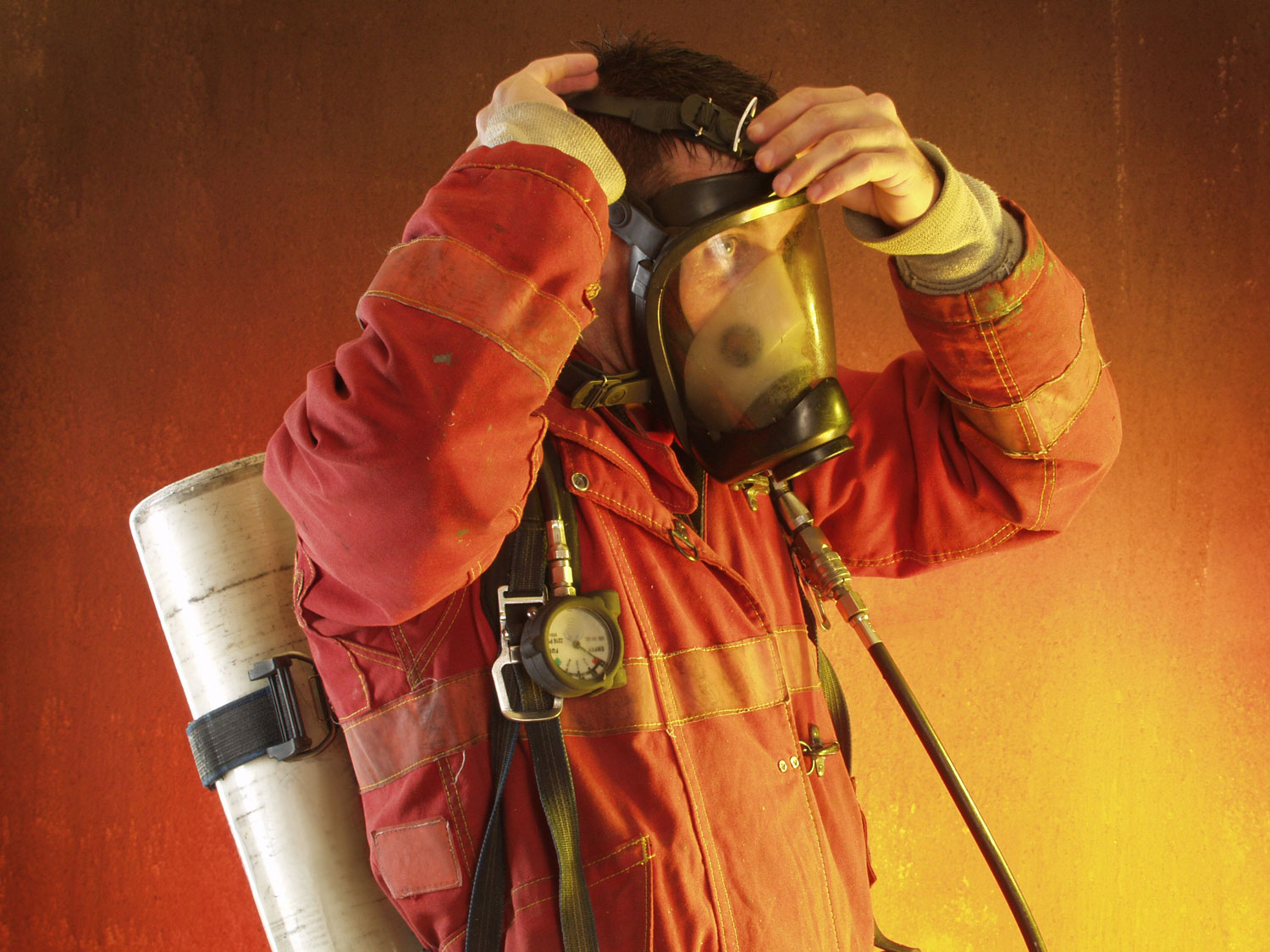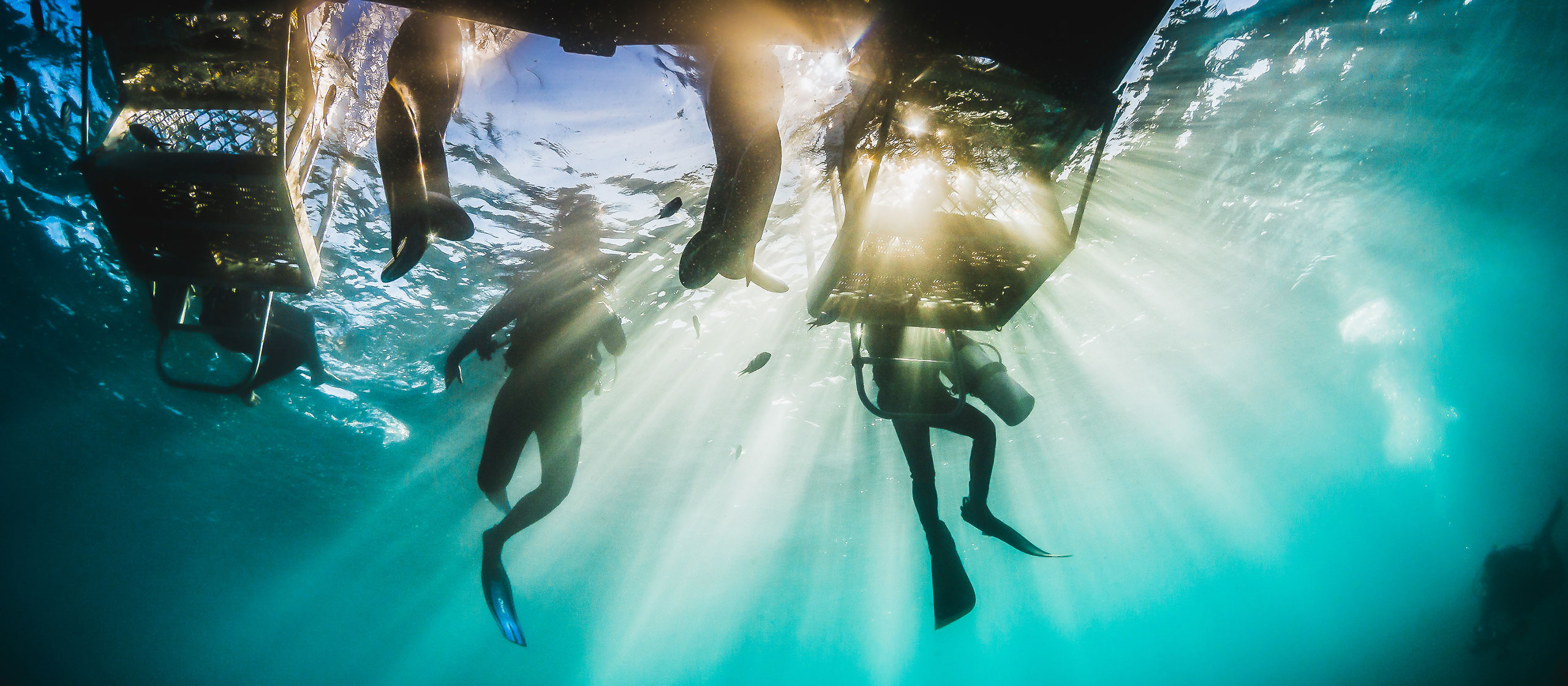Safety
Protecting Yourself From Dive Boat Fires
The recent tragic boat fires that occurred in September 2019 onboard the MV Conception in the United States and the fire onboard the Suzanna in Egypt in November once again illustrate that diving accidents do not only happen during the dive.
Although it appears that the fires may have started in a similar way, we won’t know the actual causes of these fire until authorities finish their investigations. However, there are a few things that both accidents clearly had in common: there were casualties and both fires started at night.
Obviously, these incidents are of concern to divers who are now wondering how to minimise their risks and protect themselves from something they likely have little or no control over. This article provides some background and advice to divers who are planning to make a dive boat trip.

Vessel Fire Safety
While rare within our industry, fires onboard dive boats can start as a result of numerous causes. These include fires in the engine compartment as a result of heat and fuel leakage and or the ignition of other volatile fluids such as cleaning and painting solvents by sparks from electrical systems. Faults in the electrical system such as overloading or short-circuiting of wiring and equipment can also ignite gas leaks in propane and other cooking gases. More recently, for example on the Conception, it is believed that faulty or damaged Li-ion batteries, which generate significant amounts of intense heat, may have been the source of ignition.
Boat owners are generally required to comply with local laws and regulations governing construction, the use of suitable fire-resistant materials, fire detection and alarm systems, provisions for fire extinguishers, identifying emergency exits and providing the associated signage that may be required prior to opening their vessels or facilities to the public. Owners are also responsible for performing fire risk assessments that focus on possible causes, location and spread of fires instituting operational procedures that will mitigate these risks. Finally, they need to develop and implement Emergency Action Plans in order to protect occupants as well as property at risk; this includes having staff perform regular fire drills. Appropriate training in containing and extinguishing fires is considered a prudent measure.
Though boat operators should be in compliance with the above items, that is not always the reality. Accordingly, we urge dive boat passengers to consider the following:
- Insist on a safety briefing, which should not only include life-jacket stowage instructions, but specifically how you should react in the case of fire.
- Check the escape routes and emergency exits to ensure they are accessible and useable, and familiarise yourself with the operation of any doors or hatches, especially if there are accommodations below deck.
- You may wish to check that there are either portable extinguishers that are accessible and have been inspected, or better still, some form of central overhead fire deluge system.
- Check whether fire alarms and detectors (for flame, smoke and also carbon monoxide) are installed and working. Ask when these were last tested.
- Check whether a (fire) watch system is maintained on board. that there is always a crew member awake and on duty at all times to ensure boat safety and who will able to react immediately to any kind of emergency. This is especially important for fire safety, and depending on location, may actually be a Coast Guard requirement.
- If you detect any possible emergency situation, know who to notify. If at any time you notice that they are absent or asleep, wake them up or find any available crew member. This is a serious matter and should be reported to the crew member in charge or even the captain, depending on how large the vessel is.

Evacuation Procedures
A fire can spread fast, smoke can reduce visibility to zero in no time, and the toxins in the smoke can rapidly debilitate anyone. The heat generated by a fire can also cause significant burns and prevent access to exits. However, most victims in a fire succumb to smoke inhalation rather than burn injuries.
Therefore, as soon as a fire is detected, everyone should react immediately.
Here’s some advice on how to act appropriately:
- Wake up others or activate the fire alarm as soon as you notice any fire or smoke.
- Don’t lose time searching for personal belongings. Time is crucial and even 30 seconds can make the difference between life and death.
- Remain calm (Yes, this is easier said than done!).
- Don’t take any suitcases or bags with you. Your life is worth more than whatever is inside and they can hinder you and block escape routes, making evacuation difficult or impossible for you and others.
- Where possible, and if it is safe to do so, help others during evacuation.
- Follow the instructions of the crew; they should be better trained and equipped to contain a fire, rescue any passenger that has been trapped, and ensure your safety.
- If you see a fire inside a room, avoid opening the door or any window as the entry of fresh air (hence additional oxygen) will rekindle a fire or increase its development and intensity.
- Never re-enter a vessel that is on fire. This may jeopardise both your and the crew’s lives.

Other Considerations
Although rare, the consequences of a fire may be dire and often fatal. You may want to consider these suggestions when travelling.
First, although your survival instinct might take over and determine some of your actions in a life- threatening situation, many people won’t know how to act. Knowledge of fire safety and training in emergency procedures will be very helpful when dealing with a fire, certainly in helping you to keep calm and remain focused.
Keep a small (waterproof if on a boat) bag or container next to your bed, just big enough to hold your passport, wallet and any special medications you might need. It should be as small as possible to not limit your movements and in no way slow down evacuations. If wearing glasses, especially when they could be needed during an evacuation, keep them within reach so that no time is lost in looking for them.
Do not charge the batteries in your flashlights, cameras (especially video cameras and lights), scooter or other large devices in your cabin, and perhaps even your laptop computer, tablet or cellular phone when you not present or when asleep. This is especially important if there are no smoke alarm. In addition, do not overload any electrical power outlet with too many electrical devices. This could easily lead to overheated extension cords, adapter or power strips, and or cause an electrical overload that could lead to fire.
Since the recent tragic boat fires, some divers have taken to purchasing portable (domestic-type) carbon monoxide or smoke monitors for use in their cabins. You might even consider bringing along a small portable smoke hood (protecting both your eyes and lungs) if you are concerned about fire or smoke emergencies. Note that this is something that the boat owner might consider, depending on where the accommodations might be on the boat.
Finally, pay special attention when smoking onboard a dive boat. Flammable materials, such as fuel, cleaning solvents and compressed oxygen are often present in restricted areas.
Dive travellers, remember that fire risk is not only a concern while you are on the boat; it is also present in the hotels that you stay in as well as in dive centres that you may visit. We should thus be aware of the fact that we could be comprised onshore too.
Are you a dive professional or dive operator? Participate in DAN’s HIRA project, and reduce the risks you might encounter in your dive business.
Additional Resources:
- Lithium-Ion Battery Safety
- Understanding where, when and how most fires start is the first step in reducing the risk of an onboard fire.
- California boat fire: Conception wasn’t built to charge dozens of phones, batteries and cameras. Did this cause the blaze?
- Woman Dies In Red Sea Liveaboard Fire

